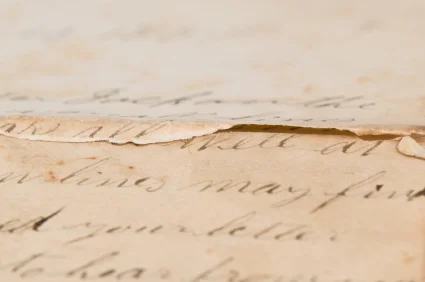The Letter Lincoln Never Sent
Sometimes our words do the most good when they are left unspoken.
It was July, 1863. The Union Army was riding high after victories at Gettysburg and Vicksburg. The Confederates were on their heels. President Lincoln sensed the opportunity to pounce on the Rebels and end the war. He sent order to Gen. George Meade to attack vigorously and to capture Lee's army before they crossed to the safety of Virgina.
Meade procrastinated, lost the opportunity, and the war continued. Navy Secretary Wells wrote, "Our Army held the war in the hollow of their hand & they would not close it."
Lincoln was dejected and discouraged. He was also frustrated with his general. It was time for the Commander in Chief to give the commander a piece of his mind. In Team of Rivals, Doris Goodwin notes that Lincoln wrote a frank letter to General Meade the afternoon of July 14:
“While expressing his profound gratitude for ‘the magnificent success’ at Gettysburg, he acknowledged that he was ‘distressed immeasurably’ by ‘the magnitude of the misfortune involved in Lee’s escape. He was within your easy grasp, and to have closed upon him would, in connection with our other late successes, have ended the war. As it is, the war will be prolonged indefinitely.’”
Interestingly, Lincoln never sent the letter. Lincoln knew his response was too emotionally charged. While it might help the president to give a "piece of his mind," doing so would rob the general of "peace of mind." Lincoln did not want to leave Meade disconsolate. Goodwin writes,
Lincoln held back, as he often did when he was upset or angry, waiting for his emotions to settle. In the end he placed the letter in an envelope inscribed: “To Gen. Meade, never sent or signed.”
Leaders live with tension. There are times to speak up and there are times to "sit on it." Knowing which way to act takes wisdom and discernment.
God helps us in Proverbs.
“21 The wise of heart is called discerning, and sweetness of speech increases persuasiveness. 22 Good sense is a fountain of life to him who has it, but the instruction of fools is folly. 23 The heart of the wise makes his speech judicious and adds persuasiveness to his lips.”
As a leader, is my criticism constructive and redemptive or is it simply an opportunity for me to sound off, to relieve my own frustrations? There is a big difference between "piece of mind" and "peace of mind." If giving the former robs someone of the latter then, like Lincoln, I'm probably better off leaving that note unsigned and unsent.

